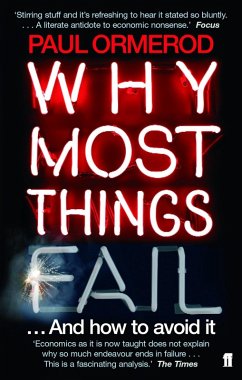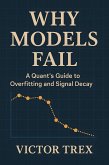From the best-selling author of The Death of Economics and Butterfly Economics, a ground-breaking look at a truth all too seldom acknowledged: most commercial and public policy ventures will not succeed. Paul Ormerod draws upon recent advances in biology to help us understand the surprising consequences of the Iron Law of Failure. And he shows what strategies corporations, businesses and governments will need to adopt to stand a chance of prospering in a world where only one thing is certain.
Dieser Download kann aus rechtlichen Gründen nur mit Rechnungsadresse in A, B, BG, CY, CZ, D, DK, EW, E, FIN, F, GR, H, IRL, I, LT, L, LR, M, NL, PL, P, R, S, SLO, SK ausgeliefert werden.









